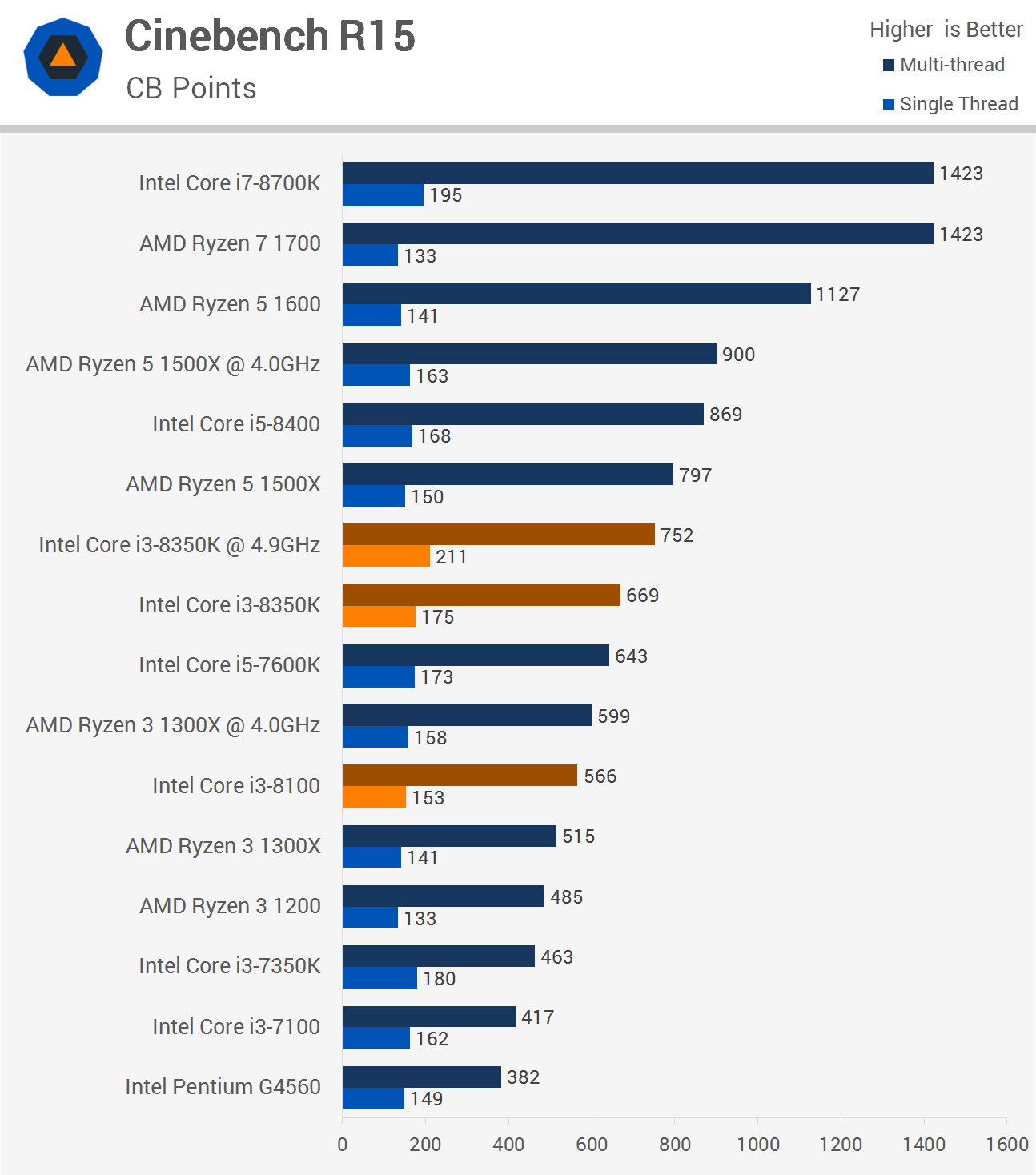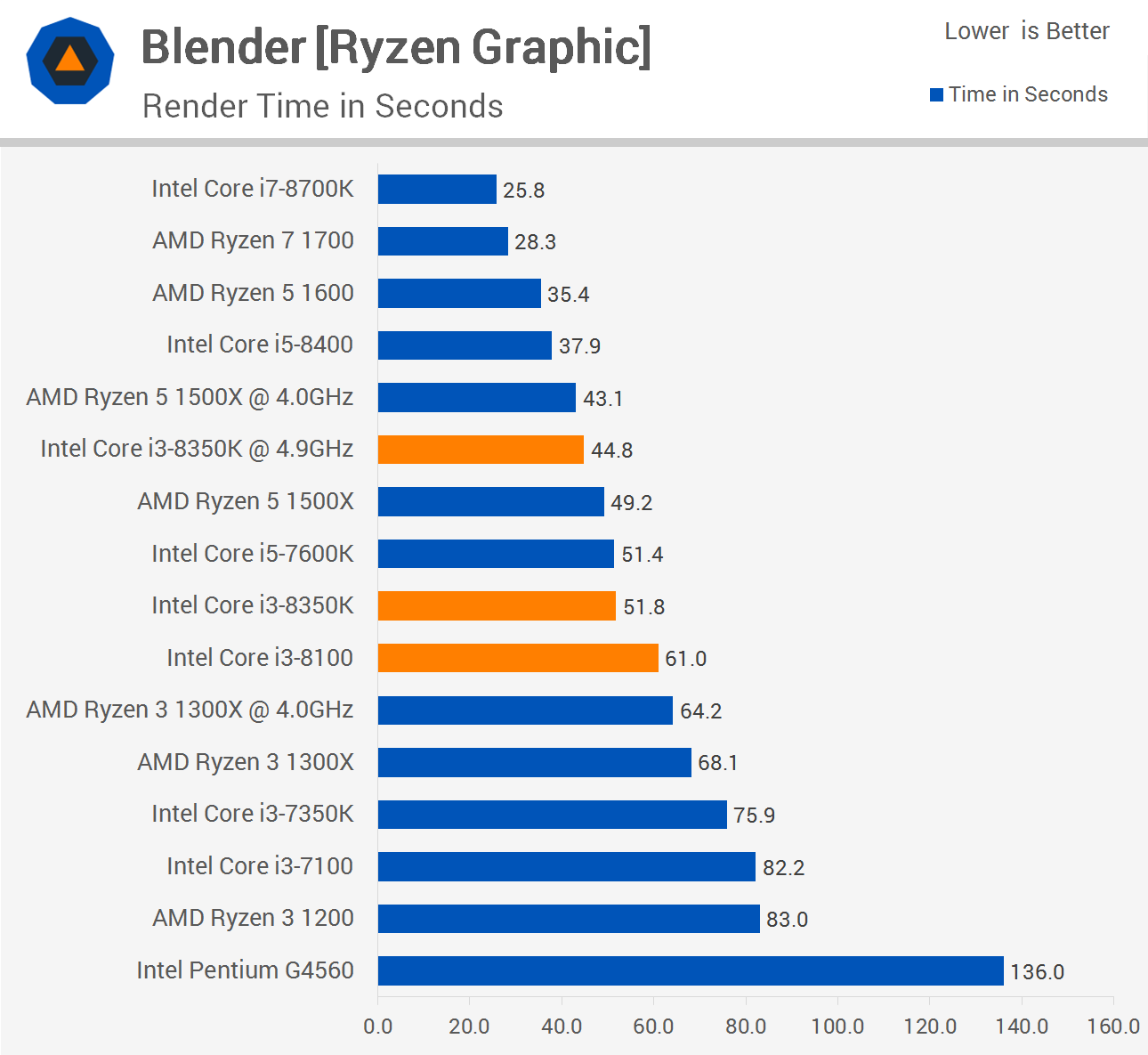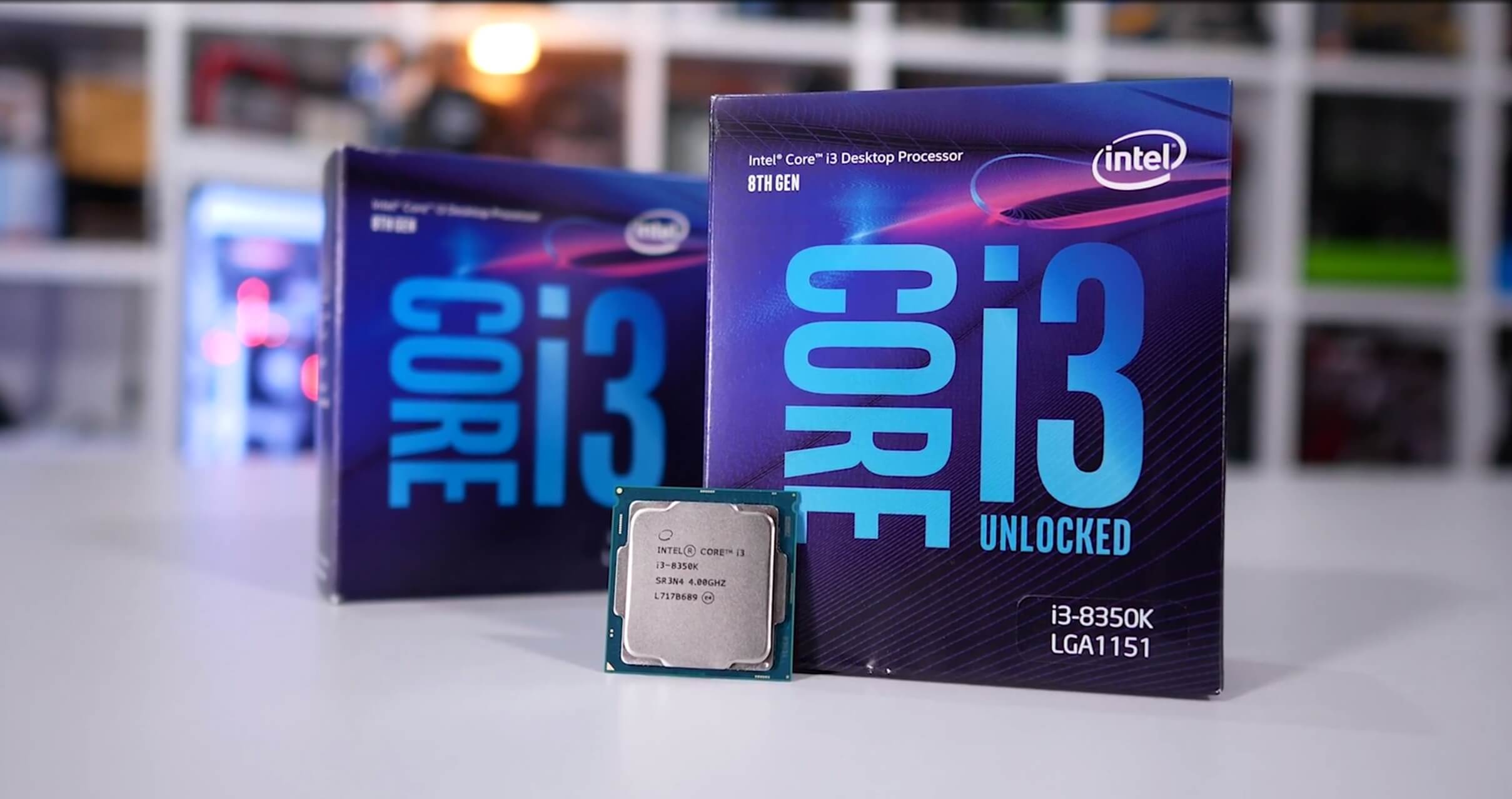Power & Overclocking
The Coffee Lake Core i3 processors look good when it comes to power consumption. The 8100 is comparable to the Ryzen 3 1300X while the 8350K consumed a little more than the R5 1500X, placing it on par with the R5 1600.

Overclocking
Previously, when testing the Core i7-8700K I was able to get it to an incredible 5.2GHz using just 1.4 volts on the MSI Godlike. Using the same motherboard for the overclocking the 8350K was only good for 4.9GHz and that required 4.2 volts to stabilize the overclock. Despite trying various voltage settings I couldn't get the system to even boot into Windows at 5GHz without crashing.
It has been suggested that Intel cherry picked the review sample chips and that's why most reviewers managed 5GHz or better with reasonably tame voltages. I've yet to get my hands on a retail 8700K but when I do I'm keen to see how it goes.

Anyway, it was disappointing to find the 8350K hit a wall at 4.9GHz, though it has to be said that that's still an impressive overclock. The overclock boosted the Cinebench R15 multi-threaded score by 12%, but that wasn't enough to match a stock R5 1500X in this test. Once overclocked, the 1500X's score was increased by a further 13%.

The overclocked 8350K was able to close in on the overclocked Ryen 5 1500X in the Blender test but ultimately still loses out, even at 4.9GHz. The Core i3 CPU also runs much hotter despite having a far better AIO liquid cooler strapped on.

Finally, here's a look at power consumption after overclocking. At 4.9GHz the 8350K is a power pig, consuming much juice as the six-core 8700K. Compared to the Ryzen 5 1500X, which pushed system consumption up almost 20% higher once overclocked, the 8350K stepped on the gas peddle and pulled 40% more power. Needless to say, efficiency goes right out the window. You'd be better off aiming for lower voltages at 4.8 or maybe 4.7GHz and this is the approach I took recently with Intel's monstrous 16 and 18-core parts.
